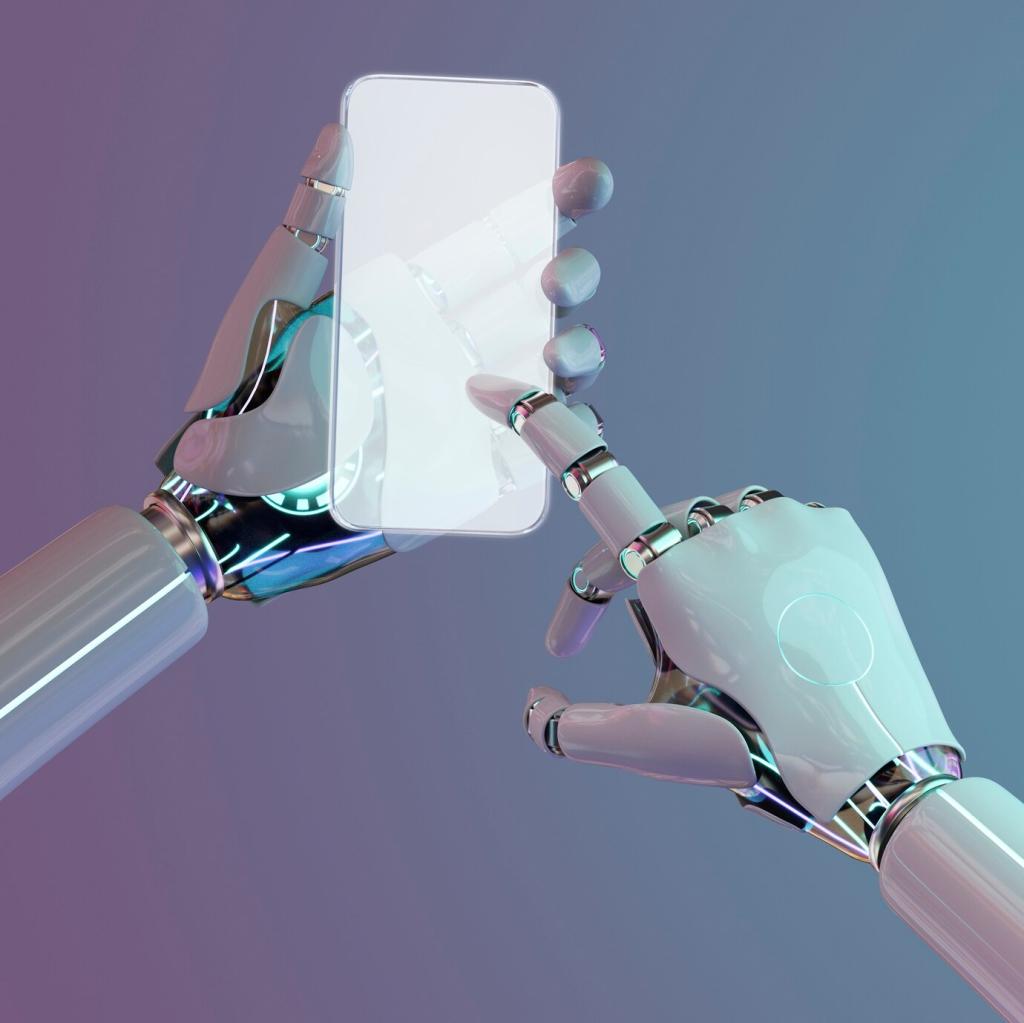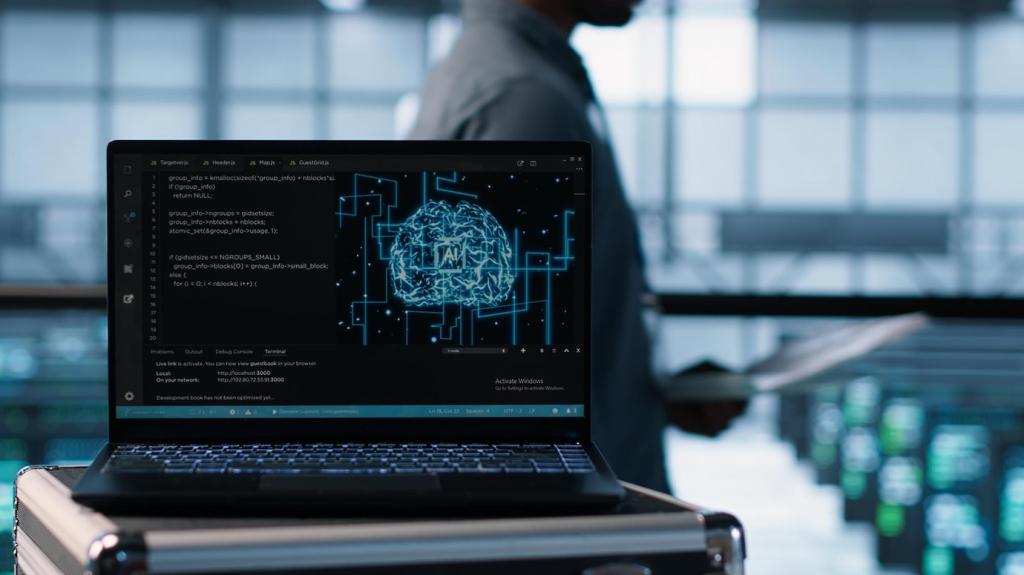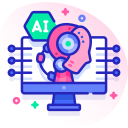
Automating Marketing Campaigns Using AI
Automating marketing campaigns using artificial intelligence (AI) is transforming how businesses connect with customers, optimize their strategies, and drive engagement. AI-powered solutions can manage, analyze, and adapt marketing campaigns at a scale and speed unattainable by manual processes. This approach leverages vast amounts of data, advanced algorithms, and real-time insights to personalize messaging, optimize campaign spend, and improve overall results. By integrating AI into marketing automation, organizations are able to deliver more relevant content, react dynamically to customer behaviors, and enhance the customer journey, often resulting in higher conversion rates and stronger brand loyalty.
The Evolution of AI in Marketing Automation
Increased Personalization and Customer Insights
The integration of AI into marketing automation platforms means brands can deliver highly personalized content to individuals based on sophisticated data models. Unlike generic, one-size-fits-all messages, AI considers user interests, previous interactions, and behavioral data to make precise content recommendations and timing decisions. Marketers are equipped with powerful tools that analyze past purchasing behavior, website interactions, and demographic information, allowing campaigns to be crafted with incredible relevance. This deep personalization leads to heightened customer engagement, improved satisfaction, and ultimately, stronger brand loyalty, as consumers feel understood on a far more personal level.
Real-Time Campaign Optimization
AI enables marketers to continuously monitor and adjust campaigns on the fly, responding to customer actions and feedback in real time. While traditional campaigns often relied on periodic reviews and manual updates, AI systems quickly analyze vast input streams, such as engagement metrics and conversion rates, to tweak subject lines, ad placements, or send times for emails. This agility ensures campaigns remain effective throughout their lifecycle, reducing wasted spend and maximizing ROI. Furthermore, by spotting trends or declines early, marketers can make rapid, informed decisions, maintaining campaign momentum and avoiding costly missteps.
Enhanced Segmentation and Targeting
With AI, market segmentation has become far more granular and effective. Instead of broad demographic groups, AI algorithms analyze countless variables—from device preference to browsing history—to create microsegments of an audience. This enables marketers to deliver the most relevant message to the right people at precisely the right time, dramatically improving conversion rates. Over time, AI systems learn and adapt to shifting consumer behaviors, refining segments and targeting criteria automatically. This continuous learning leads to sharper audience targeting, reduced acquisition costs, and more efficient use of marketing budgets.
Key Benefits of AI-Driven Marketing Automation
AI-driven automation automates repetitive and time-consuming tasks, such as lead scoring, content scheduling, and campaign tracking, freeing marketing teams to focus on strategic and creative efforts. By doing so, teams are able to dedicate more attention to high-impact projects rather than manual execution and data entry. This optimized allocation of resources also reduces the potential for human error, ensures campaign consistency, and allows smaller teams to operate at enterprise-level efficiency. As a result, organizations can scale campaigns faster and generate greater output without corresponding increases in labor or overhead costs.
Artificial intelligence improves ROI in marketing by ensuring that campaigns are continuously optimized for performance. With predictive analytics and data-driven automation, AI systems automatically adjust budget allocation, bidding strategies, and creative content to target the most promising conversions. This analytical rigor minimizes wasteful spending, moves resources to where they have the greatest impact, and reveals underperforming channels for reallocation or improvement. Additionally, detailed reporting and actionable insights empower marketers to fine-tune strategies over time, ensuring sustained growth and profitability.
One of the most transformative benefits of AI-driven marketing automation is its ability to deliver consistent, relevant, and timely interactions across all customer touchpoints. AI uses context and historical data to anticipate needs and provide proactively helpful content, offers, and support. Whether through personalized product recommendations or intelligent chatbots, customers enjoy a seamless and engaging experience. This level of anticipation and attentiveness fosters trust and loyalty, making the brand stand out in competitive marketplaces and paving the way for more enjoyable, lasting relationships with consumers.

Implementing AI Tools in Marketing Workflows
Selecting the Right AI Platforms
Choosing the best AI platforms for marketing automation is crucial for realizing anticipated benefits. Marketers must consider the specific needs of their business, such as the channels they plan to automate or the depth of personalization required. Comprehensive platforms offer features like predictive analytics, automated content generation, and multi-channel orchestration. Before adoption, stakeholders should assess integration capabilities, user-friendliness, and scalability to ensure the platform can grow with their organization. The right AI solution acts as a central hub, simplifying campaign management and ensuring data flows seamlessly between systems for unified insights.
Integrating with Existing Marketing Systems
Effective AI implementation means that new tools must blend smoothly with current marketing technologies, such as CRM software, email marketing solutions, and data analytics platforms. Successful integration allows for unified customer profiles, consistent messaging, and efficient data sharing between departments. IT and marketing teams often collaborate closely to configure APIs and synchronize databases, eliminating silos and enabling comprehensive automation. When properly integrated, AI tools enhance existing systems’ functionality, amplifying their effectiveness and maximizing prior investments, rather than forcing a costly overhaul of established infrastructure.
Training Teams and Adapting Processes
Introducing AI into marketing workflows goes beyond simply adopting new software. Teams must be trained to use advanced tools effectively, interpret insights, and respond to AI-generated recommendations. Change management becomes essential as routines and job roles evolve; marketers must be encouraged to embrace automation for routine tasks while applying human creativity and judgment where it matters most. Ongoing education, workshops, and peer learning can help staff stay current as technologies and best practices change, ensuring long-term success in a rapidly evolving marketing environment.

